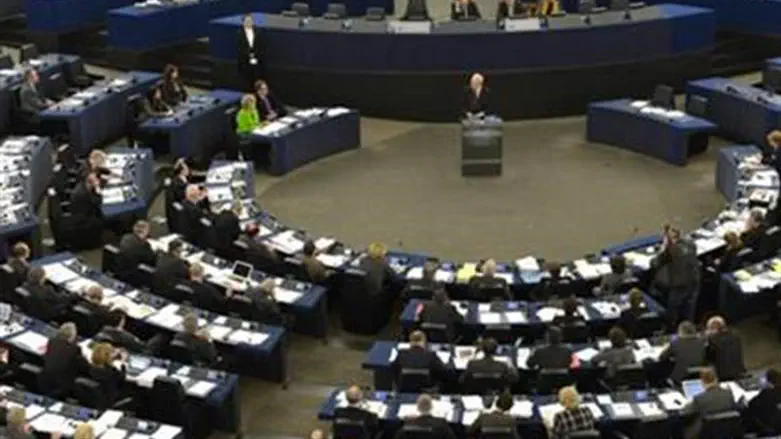
"I don't know what is going to happen in Europe. Yet I do not agree with those who think European Jews have no future. The United States and the American Jewish community should make sure to help European Jews reach their own decision about whether their communities will exist.
“We should say that Jews should be able to live in a democratic Europe as first class citizens without having to worry about their security. It is however not our role to say: ‘You should go to Israel’ or ‘You should stay in Europe.’ Europe will not be Europe if Jewish communities cannot be secure and feel they can no longer live there. Several European leaders have said the same and I am taking them at their word."
In 2013, Ira N. Forman was appointed by U.S Secretary of State John Kerry as US Special Envoy of the Office to Monitor and Combat Anti-Semitism. He served in this position until January 2017. From 1996 until 2010, Forman was the Executive Director of the National Democratic Jewish Council. In September 2011 he was named Jewish Outreach Director for President Obama's re-election campaign.
“I think that in Europe many leaders understand that even if they are not Israel’s best friends, if they can’t protect one minority, then a lot of people will suffer. In countries which already have large pluralistic societies, they have a lot of risk if the situation gets so bad that the Jews have to leave. There are leaders in Europe who are not interested in minorities. That is a different problem.
“I visited France after the July August riots in 2014. I asked a gathering of French Jewish leaders what was going to happen. In the discussion many people said they wanted to leave and how difficult that was even if things got bad. The conclusion was that this issue is about the very values of the French Republic. Jews may be the first to leave but won’t be the last.
"In various Western European countries, security forces have lost control of the streets in a number of places. This enables the intimidation of Jewish people and endangers their properties. A rabbi in a European country called me after the first week of demonstrations against the Gaza war in July 2014. He said: 'We have a second week of demonstrations. They are going to be bigger. I can't get anybody in the police or security forces to seriously respond to us. Our folks are frightened.' I said that I would try to help him but did not know whether I would succeed.
“I called our Embassy in that country. I explained the situation to our Deputy Chief of Mission, the second ranking official below the Ambassador. He said: 'I don't know if I can do anything, but let me try.' I never heard back from him. Twenty four hours later the rabbi called me and said: 'I don't know what you did but security people are calling us asking what they can do to help us.' It was a small thing, yet it made the community feel that they have a friend abroad who would try to help."
"My experience is that you don't get anything done at my level in the State Department without the help of your colleagues who have some interest in the specific area. The same goes for our embassies. The United States is a superpower, yet, in my area, we cannot get anything done alone. We have to put coalitions together of nonprofits, Israel and often also European allies.
“This is the most effective way to deal with a government that is problematic. Hungary wanted to establish a statue for Balint Homan, an anti-Semite and Nazi-allied political leader during the Second World War. Our embassy, European allies, Israel, European and Jewish nonprofits and some Human Rights Groups came together with the U.S Congress. The Hungarian government then concluded that putting up that statue was not the right thing to do.
"One can consider it symbolic but it is important for messages to get out to Eastern Europe saying: ‘You can do these things, but if you lie about history we are going to call you out on it. If you can live with honoring a Nazi understand that the world will know about it.'
“There has been real success in getting the working definition of anti-Semitism accepted in the International Holocaust Remembrance Alliance (IHRA). It is an important tool. The United States has played a strong positive role in this process, together with Germany, Israel and others. Before, we had our own anti-Semitism definition which was very similar to the IHRA one. Now the U.S Administration has put the IHRA definition up on the website.”
Forman concludes: “The US Jewish community should not ignore its own problems. Yet we also have an obligation to help our brothers and sisters in other places.”